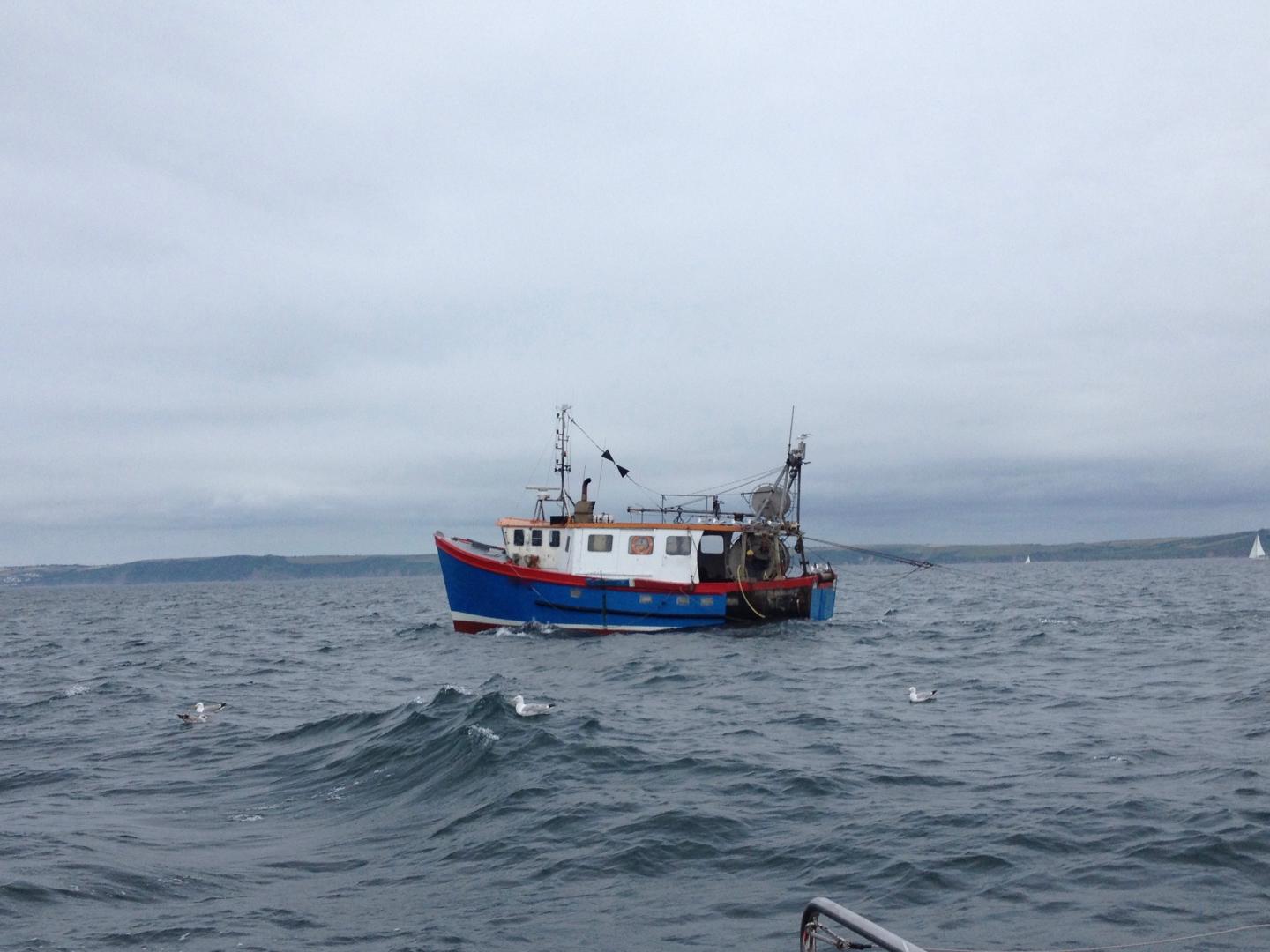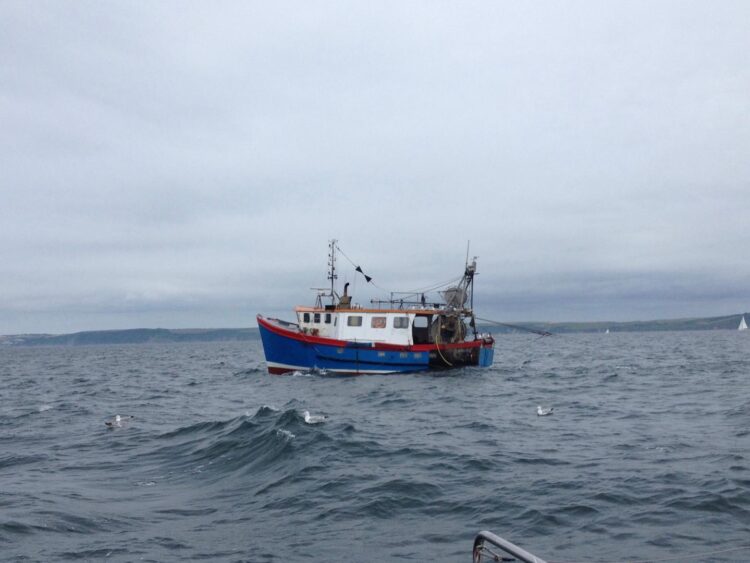
Credit: Katherine Maltby
New research out today highlights the future effects of climate change on important fish stocks for south-west UK fisheries.
The study, which generated future projections of climate impacts on fish in a rapidly warming sea region, suggests changes in the availability and catchability of commercially important Atlantic fish species including Atlantic cod, Dover sole, monkfish and lemon sole. This could have implications for fisheries management, and future fish diets of the British public.
The Celtic Sea, English Channel and southern North Sea have experienced significant warming over the past 40 years and further increases in sea temperatures are expected over the coming decades. Projecting future changes can help prepare the fishing industry and management systems for resulting ecological, social and economic effects.
The study involved researchers from the University of Exeter, the University of Bristol, the Centre for Environment, Fisheries and Aquaculture Science (Cefas) and the Met Office Hadley Centre. They used computer models to look at how fish abundances may alter by 2090 under a range of future climates. This provided opportunities to not only understand future trends, but how these trends might differ depending on the amount of warming in these seas.
Main findings from the study include:
- Projections suggest increases in abundance of warm-adapted species red mullet, Dover sole, John dory and lemon sole, and decreases in abundance of cold-adapted species Atlantic cod, monkfish and megrim.
- These changes will challenge current fisheries management systems, with implications for decisions on future fishing mortality rates, fishing effort and allowable catches. For example, declining species may need further measures to reduce their vulnerability to further warming temperatures.
- Increasingly flexible and adaptive management approaches are required that reduce climate impacts on fish species while also facilitating industry adaptation.
Importantly, the results indicate implications not only for the wider ecosystem (e.g. predator prey dynamics or community composition) but that the fishing industry and management systems will likely have to adjust their operations to address these changes. British consumers may need to also adapt their diets into the future to eat species that could benefit under future warming, such as the warm-water species red mullet, Dover sole, john dory and squid.
Lead author Dr Katherine Maltby, who undertook the research while at Cefas, said: “Our results show that climate change will continue to affect fish stocks within this sea region into the future, presenting both potential risks but some opportunities that fishers will likely have to adapt to. Consumers can help fishers take advantage of these fishing opportunities by seeking out other fish species to eat and enjoy.”
Co-author Louise Rutterford, from University of Exeter, said: “We know from working with fishers that warmer water species are appearing in catches more. Bringing together their ‘on-the-ground’ experiences with studies like ours will help inform future management decisions that enable sustainable exploitation while supporting fishers’ adaptation.”
###
The paper, entitled ‘Projected impacts of warming seas on commercially fished species at a biogeographic boundary of the European continental shelf’ was published in the Journal of Applied Ecology.
Media Contact
Alex Morrison
[email protected]
Related Journal Article
http://dx.





